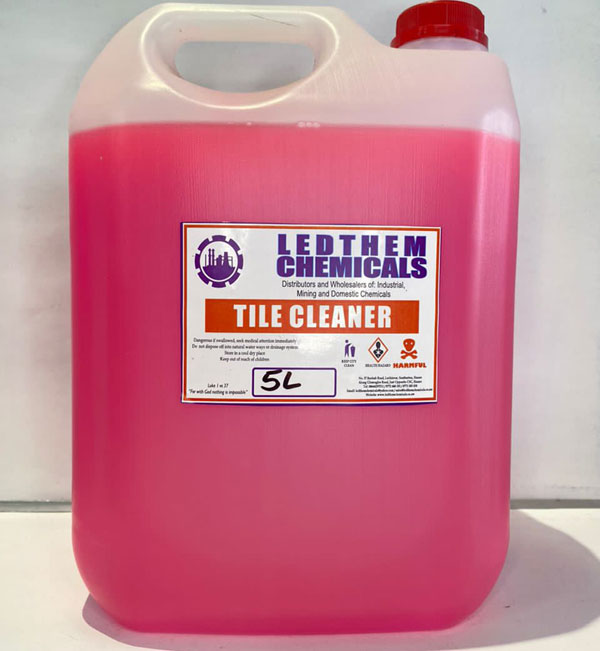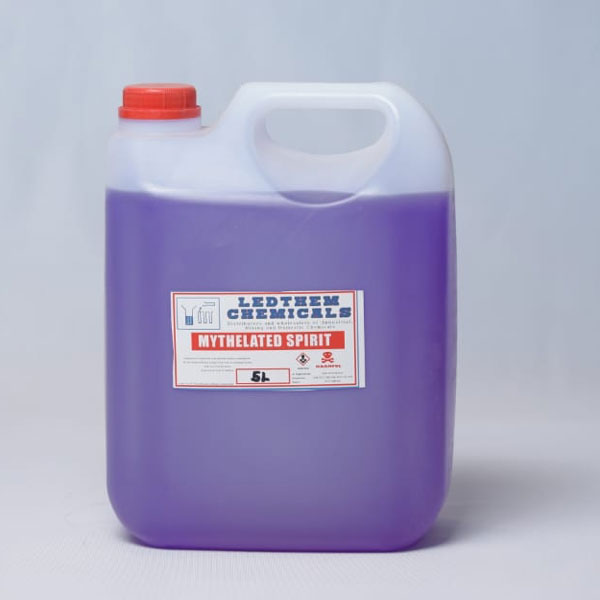Tile cleaner
Tile cleaner, slightly acidic, water based cleaner for deep cleaning of different surfaces, formula allows penetration inside the pores and texture deep down
Description
Tile cleaner Is a slightly acidic, water based cleaner for deep cleaning of different surfaces. The special formula allows the product to penetrate inside the pores and texture deep down
Additional information
| Chemical Category | CLINICAL, Clinical Detergents, DOMESTIC, Domestic Detergents, INDUSTRIAL, Industrial Detergents, MINING, Mining Detergents |
|---|
Quick Comparison
| Settings | Tile cleaner remove | Hexane remove | Mek remove | Alcosol remove | Ethanol remove | Menthanol remove | ||||||||||||
|---|---|---|---|---|---|---|---|---|---|---|---|---|---|---|---|---|---|---|
| Image |  |  |  |  |  |  | ||||||||||||
| SKU | ||||||||||||||||||
| Rating | ||||||||||||||||||
| Price | ||||||||||||||||||
| Stock | In Stock | In Stock | In Stock | In Stock | In Stock | In Stock | ||||||||||||
| Availability | In Stock | In Stock | In Stock | In Stock | In Stock | In Stock | ||||||||||||
| Add to cart | ||||||||||||||||||
| Description | Tile cleaner, slightly acidic, water based cleaner for deep cleaning of different surfaces, formula allows penetration inside the pores and texture deep down | Mek is one of many products offered by Ledthem chemicals. Get in touch for more on description. | Alcosol is a colloidal solution of a solid in alcohol. It is used in making personal care products, Pharmaceutical, Degreasers, Solvents. available in Harare | Ethanol is used in a variety of industrial and commercial applications, including degreaser, fuel, antifreeze, Pharmaceutical, cleaning and solvent | Menthanol is used in a variety of industrial and commercial applications, including solvents and degreasers, cleaners and fuel. Available at ledthem chemicals. | |||||||||||||
| Content | Tile cleaner Is a slightly acidic, water based cleaner for deep cleaning of different surfaces. The special formula allows the product to penetrate inside the pores and texture deep down | Hexane is a colorless, flammable liquid with a gasoline-like odor. It is a hydrocarbon, meaning that it is made up of only hydrogen and carbon atoms. Hexane is a common solvent, and it is used in a variety of industries, including:
Hexane is also a potential health hazard. It can be harmful if inhaled, swallowed, or absorbed through the skin. Acute exposure to hexane can cause dizziness, headache, nausea, and vomiting. Chronic exposure can lead to nerve damage, including numbness, tingling, and weakness in the hands and feet. The EPA has classified hexane as a hazardous air pollutant. This means that it is a substance that can cause harm to human health or the environment if released into the air. The EPA has also set limits on the amount of hexane that can be released into the air from industrial sources. If you are working with hexane, it is important to take precautions to protect yourself from exposure. These precautions include:
If you are exposed to hexane, it is important to seek medical attention immediately. Here are some additional information about hexane:
| Mek is one of many products offered by Ledthem chemicals. Get in touch for more on description. | Alcosol is a colloidal solution of a solid in alcohol. The alcohol is the dispersion medium and the solid is the dispersed phase. Alcosols are typically clear and colorless liquids. They are used in a variety of applications, including:
Alcosols are generally safe to use when handled properly. However, it is important to read and follow all safety precautions when using Alcosols. Here are some of the safety precautions to take when using Alcosols:
If you accidentally spill Alcosols, clean it up immediately with a damp cloth. Do not flush it down the drain. Alcosols are a versatile type of colloidal solution that can be used for a variety of applications. It is important to use them safely and responsibly. | Ethanol, also known as ethyl alcohol, grain alcohol, or drinking alcohol, is a clear, colorless, flammable liquid with a mild odor. It is a type of alcohol that is made from the fermentation of sugars or starches. Ethanol is used in a variety of industrial and commercial applications, including:
Ethanol is a renewable resource and produces fewer emissions than gasoline. It is a versatile solvent with many uses. It is important to use it safely and responsibly. Here are some of the benefits of using Ethanol:
If you are looking for a renewable, low-emission fuel or solvent, then Ethanol is a good option. Here are some additional details that you may want to include in your product description:
| Menthanol is a clear, colorless, flammable liquid with a mild odor. It is a type of alcohol that is made from wood or petroleum. Menthanol is used in a variety of industrial and commercial applications, including:
Menthanol is a hazardous material and should be handled with care. It is flammable and can cause skin irritation and respiratory problems. It is important to read and follow all safety precautions when using Menthanol. Here are some of the safety precautions to take when using Menthanol:
If you accidentally spill Menthanol, clean it up immediately with a damp cloth. Do not flush it down the drain. | ||||||||||||
| Weight | ||||||||||||||||||
| Dimensions | N/A | N/A | N/A | N/A | N/A | N/A | ||||||||||||
| Additional information |
|
|
|
|
|
|






Reviews
There are no reviews yet.